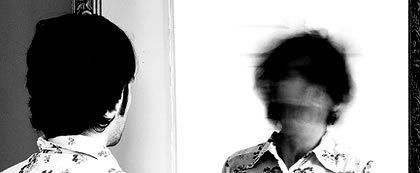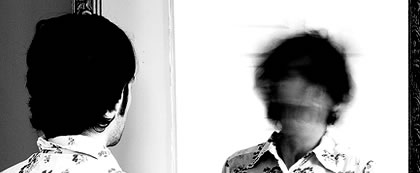
The best known modern theory conceptualising emotional states concentrates on two dimensions: valence and arousal. Valence refers to whether you feel positive or negative and arousal refers to physiological ‘excitement’. This model has been extremely popular probably because it provides a relatively simple way of researching emotions that can at least provide some answers. Rage, for example, can be considered an emotion that is high on both negative affect as well as arousal.
While this model is useful in some senses, it’s clear that there are a number of serious problems. Chief amongst these is the question of how emotions that apparently have quite distinct characteristics – like fear and anger – can be accounted for on these two dimensions.
Going beyond this there are a wide range of questions that you might want to ask about the emotions which seem intrinsically too complicated to explain within this simple model. For example, how come the same event provokes different emotional reactions in different people? Or, in what sense is emotion irrational? How are our emotions (largely) appropriate to the situations in which we find ourselves?
Appraisal theory
These are all questions which Roseman & Smith (2001) argue stand a better chance of being answered with a theory based around ‘appraisals’. At the heart of appraisal theory is the idea that the particular judgements we make about particular parts of the outside world, and ourselves, are what causes emotions.
Appraisal theory appears to have the potential to answer many of the questions posed about emotions. For example, people’s individual patterns of appraisal could explain the differences in emotional reactions to the same event. Appraisal theory seems to provide a good way of connecting the situation we are in with our emotional reactions.
Like many modern theories in psychology appraisal has an evolutionary dimension. Returning to anger and how it can be conceptualised, one particular appraisal theory posits that differentiating anger from sadness can be seen as adaptive with respect to our motivations. If we find ourselves in a situation which is appraised negatively and there is no relevant action, for example a bereavement, we experience sadness. On the other hand we may experience anger when there is a relevant action that may be of benefit – for example . Sadness tends to encourage passivity, while anger encourages activity (Roseman & Smith, 2001).
This suggested explanation of anger also touches on the relational aspect of appraisal theory. Our situational appraisals appear to be highly dependent on our motives and goals (Roseman & Smith, 2001). In other words, how we feel depends on what’s important to us, indeed all our appraisals are connected to what we want and, therefore, to how we feel.
What kind of a thing is an appraisal though? Is it a thought, an emotion itself, how can we think about it? Roseman & Smith (2001) argue an appraisal can be thought of as a kind of perception. Like vision or touch it is a kind of information processing channel which works at a relatively low level. This may help to explain why our emotional responses to certain situations often seem beyond our control. Perhaps appraisals are analogous to vision in the sense that we can make particular judgements about what we see, but we can’t choose how we see – that is an automatic process.
Structural vs. process theories of appraisal
Roseman & Smith (2001) make the distinction between two types of appraisal theories. Firstly there are structural theories which concentrate on picking apart the evaluations we make. Secondly there are process-orientated models which concentrate on the actual operation of emotional processes. It is one such process-orientated model that I’ll be moving on to discuss in the next post where I’ll be discussing in more detail how conscious and unconscious emotional processes fit together with appraisals.
 Roseman, I. J., Smith, C. A. (2001) Appraisal Theory. In: K. Scherer, A. Schorr, T. Johnstone (Eds.). Appraisal Processes in Emotion: Theory, Methods, Research. Oxford: Oxford University Press.
Roseman, I. J., Smith, C. A. (2001) Appraisal Theory. In: K. Scherer, A. Schorr, T. Johnstone (Eds.). Appraisal Processes in Emotion: Theory, Methods, Research. Oxford: Oxford University Press.

